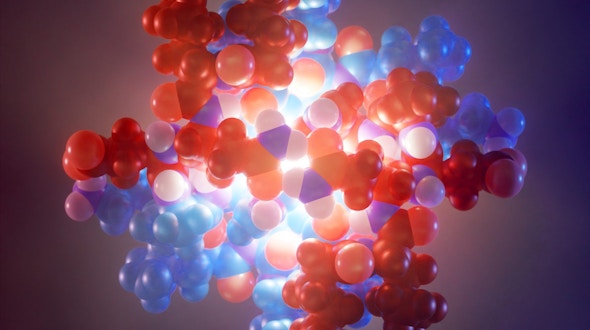The theory of protein folding explains how a disordered chain of amino acids spontaneously adopts a well-defined three-dimensional structure in water. The ultimate test of a theory is its successful application to the design of new physical systems with new, desired properties. In the Biomolecular Design Group, we apply the theory of protein folding to design new heteropolymers that fold into well-defined three-dimensional structures with new, useful functions, but which are built from exotic chemical building-blocks that go beyond the 20 canonical amino acids that make up natural proteins.
We develop software permitting robust rational design of such molecules. The chemical building blocks that we are most interested in, and from which chemists can synthesize new molecules, include amino acids with exotic side chains, mirror-image D-amino acids, β- and γ- amino acids, peptoids and more exotic polymer building blocks. Our interests include the rational design of peptide macrocycle drugs able to bind to targets of therapeutic interest, the robust engineering of new enzymes able to catalyze chemical reactions of industrial or medicinal use, and the creation of new nanomaterials with exotic properties. We are also greatly interested in harnessing new and emerging computational technologies, such as GPUs, FPGAs, quantum computers and deep neural networks, to further advance physics-based heteropolymer design methods.



